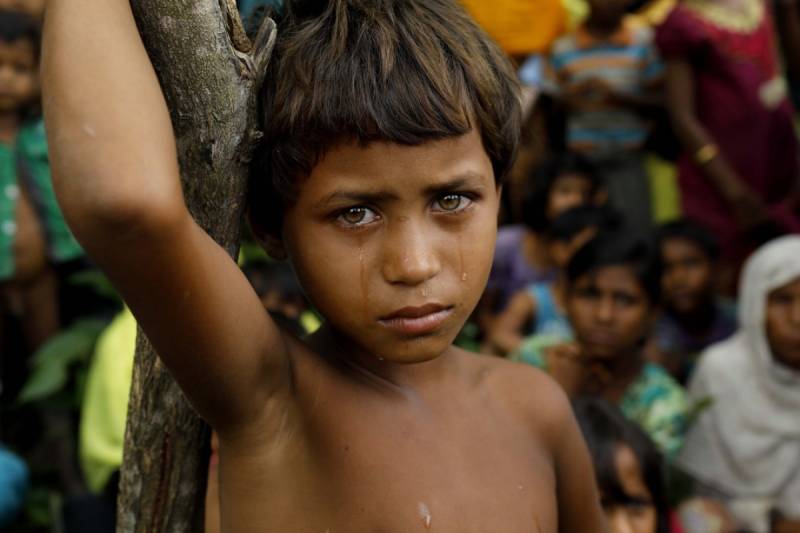A senior official of Myanmar alleged at the United Nations on Saturday that "destructive movements in the camps (in Bangladesh) aimed at preventing repatriation and exploiting the plight of dispersed person (Rohingyas)."
However, the Daily Star report states that the Myanmar delegation, represented by Kyaw Tint Swe, did not specifically point out or clarify what did he mean by the term "destructive movement".
"We also call on Bangladesh to allow the speedy repatriation of those who have long expressed their desire to return including some 400 people of Hindu fate," he said in his speech.
"… introducing new elements, putting forward new conditionality will be a futile exercise," he said adding that exertions of discriminatory scrutinisation and political pressure with malicious intent will not contribute to our efforts in resolving the problem.
He also claimed that the Myanmar government was dedicating all of its resources into helping the Rohingya affected by the violence in the Rakhine state to resettle in the region.
The Minister dismissed calls by Bangladesh, Malaysia, and now China, to establish a “safe zone” in Myanmar as “neither warranted, nor workable.”
Regarding accountability for the events in Rakhine state, Swe reported that a military investigation is currently underway.
“A recent announcement suggests that there will soon be a court martial,” said a UN News report quoting him.
Swe also addressed an International Criminal Court (ICC) request to authorize an investigation into alleged crimes in Rakhine State.
However, he said “independent scholars have already identified the request is problematic in that it excludes alleged crimes committed by the Arakan Rohingya Salvation Army, with deliberate omission of the undisputed fact that their actions precipitated the current displacement.”
Other concerns cited include that the ICC Prosecutor “relies heavily on human rights reports” which contain “factual errors” on both national and international law.
In Swe’s view, the ICC Prosecutor is focused on the outflow from Rakhine state yet remains “silent” on what he called “the broader picture” behind the displacement, as well as the various parties involved.
“This silence widens the divide between the International Criminal Court and the people of Myanmar who have been made to feel that their concerns are of less import than the perceptions of influential nations and organizations acquainted but superficially with the true situation on the ground,” he said.
The Arakan are an ethnic community in the Rakhine state that have sustained their own secessionist movement. Unlike the Rohingya, they have an active insurgency against the government of Myanmar, which they believe has neglected their community.






